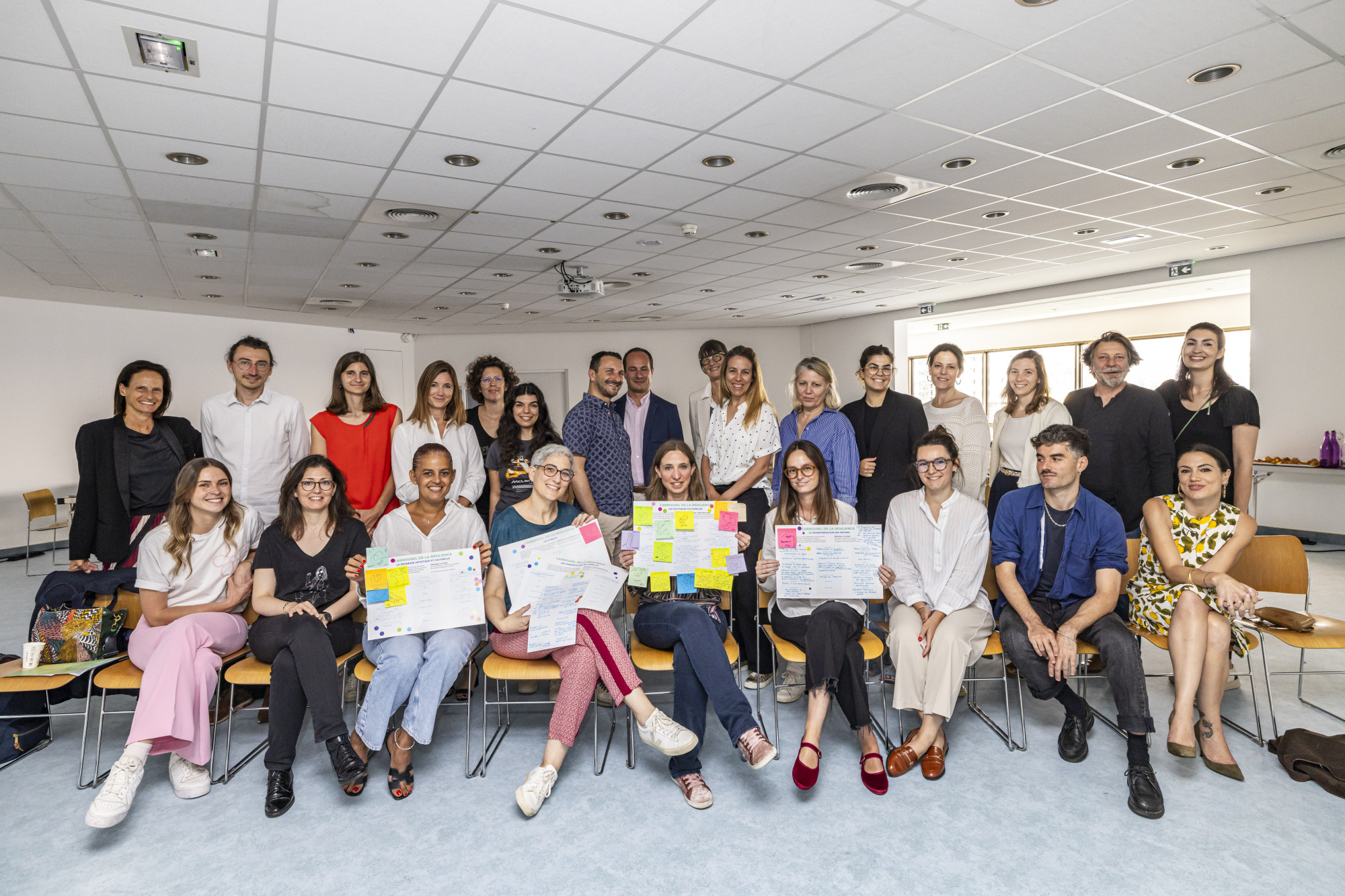
Ecological transition in Monaco's cultural sector
Workshop
As part of the second edition of the Green Shift Festival, organised by the Prince Albert II of Monaco Foundation from 5 to 7 June 2024, a professional workshop has been set up with the Principality's cultural institutions, with the support of the Department of Cultural Affairs, to explore the ecological transition in the cultural sector.
Following an initial design fiction workshop in 2023 on the theme of ‘Culture in Monaco in 2040’, which involved imagining transition scenarios in which culture would embody a vector of positive change for our societies, awareness-raising continued around the issues linked to the transition of the cultural sector, with a period of inspiration based on the sharing of good practice and geared towards concrete action.
The workshop, designed in collaboration with Imagine 2050, a consultancy and impact production company, was held on Friday 7 June 2024 at the Auditorium Rainier III and was co-hosted by Yasmina Auburtin, a consultant in new narratives, lecturer, workshop leader and producer (TV - advertising - citizen mobilisation), and Laurence Ghestem, consultant and producer, expert in ecological transition for the cultural sector.
The impact of the cultural sector on the environment
To comply with the Paris Agreement, the cultural sector, like other sectors of activity, must reduce its carbon footprint by 80% by 2050, and to do this, cultural entities must reinvent the way they produce, distribute and communicate their content.
In terms of carbon impact, the activities that emit the most greenhouse gases (GHGs) in the cultural sector are: transport and mobility (between 60 and 90%), food (between 8 and 10%), energy/air conditioning/heating (between 5 and 10%) and digital (between 2 and 50%), as well as more indirect sources such as design/logistics/waste (between 5 and 8%), buildings and equipment (between 2 and 15%) and communication (less than 2%). The following could also be counted, although their impact remains modest on the scale of the sector: fresh water consumption, noise or light pollution, the use of toxic materials, the use of critical materials and threats to biodiversity.
These are all activities that the cultural sector must take into account if it is to transform itself and ensure its resilience.
The Culture fresco
The five themes chosen for the workshop (audiences, the transformation of professions, cultural policies, sectoral consultations, the artistic and cultural promise) were borrowed from the Fresque de la Culture, based on the report ‘Decarbonising Culture’, written as part of the Plan for Transforming the French Economy (The Shift Project, 2021), and which to date constitutes the most accomplished work on the impact and decarbonisation of the performing arts, the visual arts, cinema and publishing.
Inspired by the Fresque du Climat, and based on the most recent work of the Shift Project, the Fresque de la Culture is a tool for raising awareness among professionals in the form of a collaborative, fun and educational workshop. It provides an opportunity to understand and take ownership of the issues involved in the ecological transition (role, carbon impact and vulnerability of the sector), but above all to identify concrete and sustainable levers for action that professionals can mobilise at the level of their structures.